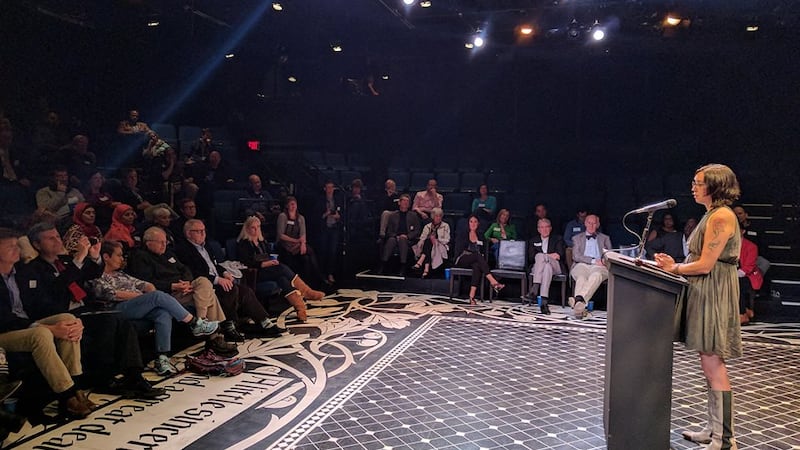The battle over free speech on college campuses across America is also roiling one of Portland's most august institutions, the City Club of Portland.
Founded in 1916, City Club is best known for its meaty research reports and high-profile Friday Forum at the Sentinel Hotel downtown.
On June 19, the club began elections for five seats on its 17-member board of governors—an election that will give voice to a conflict that's been brewing for at least two years. (Results won't be available until next week.)
Two former club presidents have mounted dissident candidacies, the result of a pitched battle between more than a dozen former City Club presidents and the current administration, which has sought a younger, more diverse membership.
Critics say the club, where Portland mayors present State of the City addresses and statewide candidates debate, has sacrificed intellectual rigor at the altar of political correctness.
"The club's Friday Forums have become a liberal echo chamber. They are boring and unenlightening," says Jim Zehren, a past club president and retired lawyer. "I say that as a very liberal Hubert Humphrey Democrat from Minnesota."
Tradition rules at City Club. The organization didn't admit women until 1973, and only did so then after three years of pressure from advocates, including the late Mayor Vera Katz and the late City Commissioner Gretchen Kafoury.
"Change is hard, but I think it's really healthy," says Sharon Robbins, a past City Club president supportive of the club's new approach. "Some folks have a really strong vested interest in the way the club used to be—long after women became members, it was still shaped by older white male voices."
Some trace the current tensions back to 2013, when former Mayor Sam Adams became the club's executive director and began broadening the club's demographics and diversifying its programming.
The dissident board candidates are Paddy Tillett, a principal at ZGF Architects, and Peter Heuser, a longtime patent lawyer at the Schwabe, Williamson & Wyatt law firm.
In a May 24 email to club members, Heuser wrote that recent club communications seemed to be "encouraging a leftist outlook."
"We agree that the Club and the nominating committee is right to strive for diversity as to race, ethnicity and sexual preference, but the Club has lost its way in not promoting diversity of thought," Heuser wrote.
Critics cite a couple of high-profile examples.
In December 2016, City Club presented a Friday Forum on Measure 11 that included four opponents of mandatory minimum sentences but nobody from law enforcement.
Then, last November, City Club refused to release a research report on substance abuse that had been six months in the making—because the research panel members were all white, a fact club leaders knew from the outset.
The committee released the report independently without City Club's name on it.
"That was the turning point for me," says Heuser, a City Club member for 38 years. "The leadership is doing a wonderful job in moving toward diversity. That's a laudable goal, but you also have to preserve objectivity—objectivity and diversity are not inconsistent."
Julia Meier, who took over as the club's executive director last July, denies that the club's research or its forums are any less intellectually rigorous than in the past.
"One of our core values is independence," Meier says. "When we come to an issue either research or forum, it's important that we come without a preconceived agenda."
Meier says the controversial Measure 11 panel preceded her tenure and that the decision to spike the substance abuse report was made by her board, not by her.
Whether it's because the club is a "liberal echo chamber" or millennials don't like joining organizations, City Club's finances have taken a hit.
The club's tax returns show a steep decline in revenue from $787,000 in 2015 to $583,000 in 2017. The club has also incurred operating losses in the past two years, losing $115,000 last year.
And last summer, City Club's partnership with OPB to replay the Friday Forum statewide ended.
Meier acknowledges the club's finances and the end of the OPB partnership present challenges, but she says the club's new approach—a combination of radio broadcasts on XRAY.FM, Facebook Live on KGW.com, and community television with Open Signal—provides access to a broad audience.
"We want to be a big-tent inclusive organization," Meier says. "I want our members to be diverse in all ways. I want people from all parts of the city to be able to look at City Club and say, 'That's a place I belong.'"
